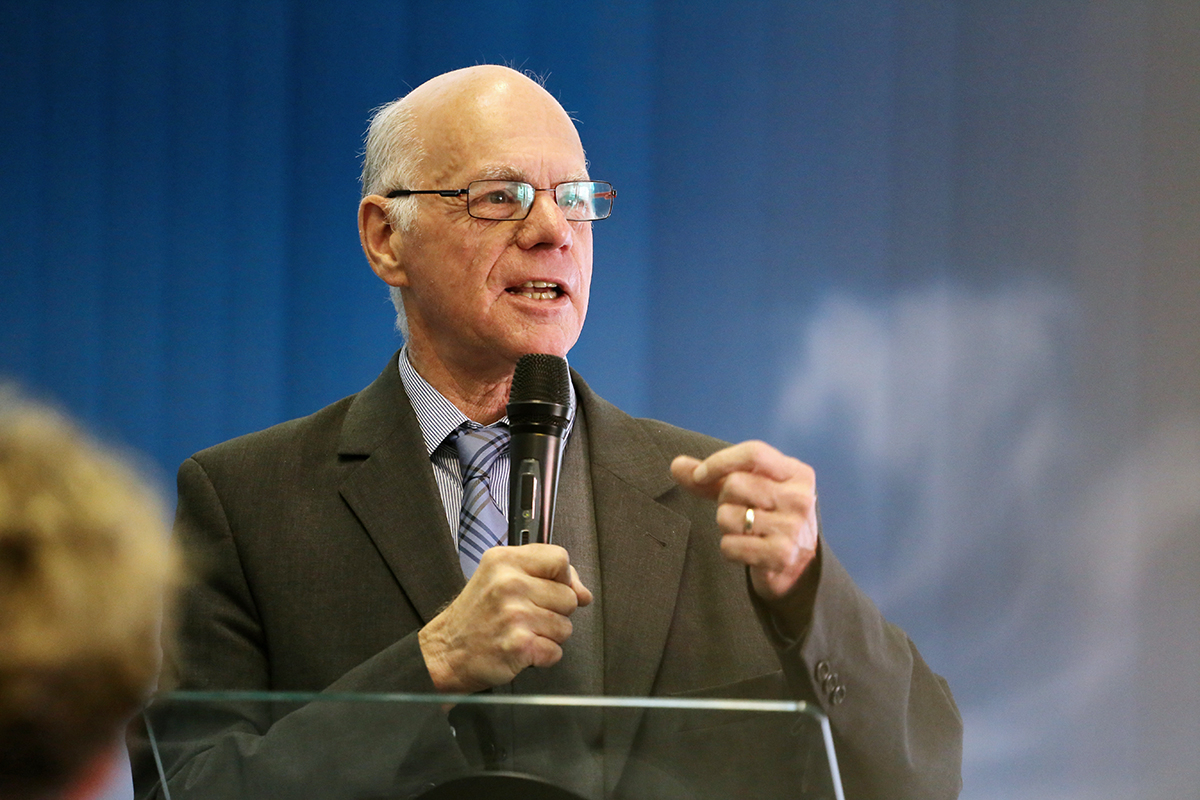Norbert Lammert visited SPbU

St Petersburg University has met with the President of the German Bundestag Professor Norbert Lammert. He met Rector Nikolay Kropachev and delivered an open lecture for the students.
Nikolay Kropachev greeted the honoured guest in the oldest university in Russia. The history of the University is closely connected with Germany: Germans have always been represented in the academic staff of the University, and the first.
Rector was Professor Gerhard Friedrich Müller, born in Westfalen, said Nikolay Kropachev.
I am glad that both German scientists and Russian scientists who returned from Germany contribute to our excellence in education and research.
SPbU’s Rector Nikolay Kropachev
“It is Germany that is a priority country to develop student and staff academic exchange. Importantly, our joint publications are on the rise”, — said Nikolay Kropachev.
Our collaboration with the foreign partners and scientists contribute greatly to our performance in Scopus, Web of Science, and Nature, said Rector. Our policy of openness and democracy has also made its contribution, added Rector.
Norbert Lammert was eager to know how the University had been recently developing and expressed his gratitude for the warm welcome, especially for the opportunity to meet with the students.
He delivered a lecture on the modern parliamentary, election campaigns in Germany in 2017, German Bundestag and party system in Germany. The parliament of any democratic state must conform to four indicators, said Norbert Lammert.
“Although the UN comprises about 200 countries, only 13 of them conform to the principle of parliamentary”, — said the politician. For the last ten years, no country has succeeded in it, said the speaker, and some of them no longer meet these principles. In most countries, these principles are only partially implemented. Germany is a “dramatic” example of dynamic changes which, according to Norbert Lammert, have led to stable parliamentary democracy in Germany, and the principles of parliamentary have become immanent features of the country.
Professor Lammert also told that the German election system is a result of century-old development. Today its primary concern is to proportionally represent population’s interests in the parliament. “In my opinion, the election system in Germany is far from being simple, — said he. — Although it is rather complex, it reflects the political preferences of our voters”. As a result of the 2017-elections, the German parliament has 120 members, with the number of the parliamentary groups being increased by two.
Professor Lammert summed up his lecture that in Germany the quality of the decisions is determined by the majority – the true democracy implies that it holds the interests of the minority. In this respect, the German Bundestag has a complicated system of rules and standards to support the rights of the minority. In particular, one third of the parliament is represented by those who serve to the interests of the minority. “Unfortunately, the history shows that the majority are likely to be erring. Democracy is far more complex as it may appear”, — said the lecturer.
The participants asked a number of questions to the President of the German Bundestag. Among the key issues they discussed were the results of the elections in Germany, limiting number of refugees in Germany and migrant assimilation, the stunning success of the Alternative for Germany in the election, global rise of the “right-wing” trends, entering of Turkey in the EU, financial integration of the EU, and its future after the Brexit.
Answering the question about limiting the number of refugees, Norbert Lammert answered that the convention on the refugees does not stipulate the threshold of the displaced persons, those who leave the country as they are being religiously or politically prosecuted. Otherwise, there are people who want to change their residence to improve their living conditions. Today, Europe is trying to get insight into how these two motives relate to each other and develop a fair system to regulate migration flows. Besides, the migration crises of 2015, which caught Germany off guard, showed that if Europe had no borders within the continent, it could lead to the Brownian motion of about six hundred thousands of migrants from a million people from the Near East arriving in Europe in the beginning of the crisis.
Another issue that the students were interested in was the success of the Alternative for Germany in the elections to the German Bundestag. Norbert Lammert started with the statistics: 42 parties took part in the elections, Alternative for Germany got 13 % places in the parliament, thus becoming the third in terms of the number of places in the parliament. The success of the conservative party was due to dissatisfaction of the population with how the last parliament and government worked. All in all, the trend toward to the right-wing policy, said Professor, is not positive for the democratic states: simple answers to complex questions that the populists offer are more likely to lead to a blind alley. Global problems should be approached in a holistic and complex way, said Norbert Lammert.

